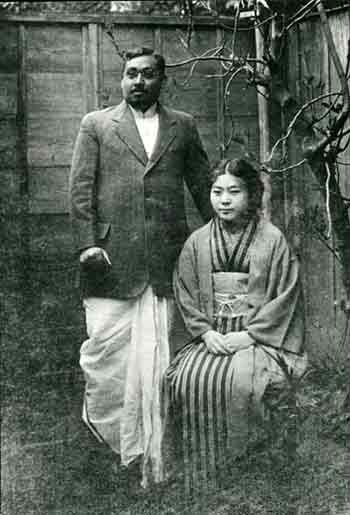The story of Acharya Balkrishna and his journey as one of the founders of Patanjali Ayurved Limited is a fascinating tale of entrepreneurship, dedication to Ayurveda, and remarkable success in the Indian consumer goods industry. In this comprehensive essay, we will delve into the life of Acharya Balkrishna, his contributions to Patanjali, the challenges faced, and the strategies that led to the company’s phenomenal growth and impact.
Early Life and Education
Acharya Balkrishna, whose original name is Balkrishna Subedi, was born on August 4, 1972, in Nepal. His early life was marked by an affinity for traditional knowledge systems, especially Ayurveda and Yoga. He received education and training in Ayurvedic principles, herbal medicine, and yoga practices under the guidance of renowned scholars and practitioners in India.
Meeting with Baba Ramdev and Partnership
Acharya Balkrishna’s life took a significant turn when he met Baba Ramdev, a well-known yoga guru and advocate of Ayurveda, in the late 1990s. The meeting sparked a deep friendship and partnership based on shared interests in promoting holistic wellness through Ayurveda, yoga, and natural remedies. Together, they envisioned creating a brand that would revive ancient Indian traditions and offer natural healthcare solutions to the masses.
Foundation of Patanjali Ayurved Limited
In 2006, Acharya Balkrishna, along with Baba Ramdev, founded Patanjali Ayurved Limited with a modest beginning in Haridwar, Uttarakhand. The company’s name is inspired by the ancient sage Patanjali, known for his contributions to yoga and Ayurveda. From its inception, Patanjali aimed to combine the principles of Ayurveda with modern manufacturing practices to produce high-quality, natural products.
Role and Contributions to Patanjali’s Growth
- Ayurvedic Expertise: Acharya Balkrishna’s deep knowledge of Ayurveda, herbal formulations, and traditional medicinal practices became instrumental in developing Patanjali’s product range. He ensured that the company adhered to authentic Ayurvedic principles in sourcing ingredients, manufacturing processes, and product efficacy.
- Research and Development: Under his leadership, Patanjali invested significantly in research and development (R&D) to innovate and create new products aligned with consumer preferences and market trends. This focus on R&D helped Patanjali expand its product portfolio across diverse categories.
- Quality Assurance: Acharya Balkrishna emphasized stringent quality control measures to maintain the purity, potency, and safety of Patanjali products. This commitment to quality assurance earned the trust and loyalty of consumers who valued natural and effective alternatives to mainstream brands.
- Market Expansion: With strategic planning and effective marketing strategies, Acharya Balkrishna played a pivotal role in expanding Patanjali’s market presence across India. The company penetrated urban and rural markets, leveraging Baba Ramdev’s popularity, word-of-mouth marketing, and competitive pricing.
Key Milestones and Successes
- Wide Product Range: Patanjali quickly diversified its product offerings beyond Ayurvedic medicines to include personal care items, food products, cosmetics, herbal supplements, and household goods. This diverse range catered to various consumer needs and preferences.
- Brand Recognition: Within a relatively short span, Patanjali gained significant brand recognition and recall value among Indian consumers. The brand’s association with natural ingredients, Ayurvedic heritage, and affordability resonated with health-conscious and value-seeking customers.
- Market Disruption: Patanjali disrupted the FMCG sector in India, challenging established multinational corporations with its natural, herbal, and swadeshi (indigenous) products. The brand’s success encouraged other companies to explore natural and Ayurvedic segments, leading to a shift in consumer preferences.
- Revenue and Growth: Patanjali’s revenue and market share witnessed exponential growth, making it one of India’s fastest-growing FMCG companies. Its success attracted investments, collaborations, and partnerships, further fueling expansion and diversification efforts.
Challenges and Resilience
Despite its rapid growth and success, Patanjali faced several challenges along the way. These included:
- Quality Concerns: Initially, there were concerns about product quality and consistency due to the rapid scaling of operations. Patanjali addressed these issues by enhancing quality control measures and investing in modern manufacturing facilities.
- Regulatory Compliance: The FMCG sector in India is heavily regulated, requiring adherence to stringent quality standards, labeling regulations, and product certifications. Patanjali navigated these regulatory challenges through compliance measures and industry partnerships.
- Competition: Established multinational and domestic FMCG brands posed stiff competition in various product categories. Patanjali responded by differentiating itself through Ayurvedic formulations, competitive pricing, and aggressive marketing strategies.
- Supply Chain Management: Managing a complex supply chain to meet growing demand across diverse markets required strategic planning, logistics optimization, and efficient distribution networks. Patanjali streamlined its supply chain processes to ensure product availability and timely deliveries.
Sustainability and Social Impact
Acharya Balkrishna and Patanjali Ayurved Limited have also emphasized sustainability, environmental consciousness, and social responsibility. The company has adopted eco-friendly packaging, promoted organic farming practices, and engaged in community development initiatives, including healthcare camps, education programs, and rural empowerment projects.
Global Expansion and Recognition
Patanjali’s success in India paved the way for international expansion and recognition. The brand has explored markets in countries with significant Indian diaspora populations, offering Ayurvedic products, herbal supplements, and natural cosmetics. Its presence in global markets reflects the growing interest in traditional Indian wellness practices and natural products worldwide.
Future Strategies and Continual Innovation
Looking ahead, Acharya Balkrishna and Patanjali remain focused on innovation, sustainability, and customer-centric strategies. The company continues to invest in R&D, explore digital commerce opportunities, and expand its product reach in both domestic and international markets. With a strong foundation built on Ayurvedic principles, consumer trust, and brand loyalty, Patanjali is poised for sustained growth and impact in the years to come.
Legacy and Influence
Acharya Balkrishna’s visionary leadership, coupled with his deep-rooted knowledge of Ayurveda and holistic wellness, has left a lasting legacy in India’s FMCG and healthcare sectors. His contributions to promoting Ayurveda, natural living, and indigenous products have inspired a resurgence of interest in traditional Indian wisdom and holistic lifestyles among consumers, entrepreneurs, and policymakers.
Conclusion
Acharya Balkrishna’s journey as a co-founder of Patanjali Ayurved Limited exemplifies resilience, innovation, and a commitment to Ayurvedic heritage. His strategic vision, business acumen, and dedication to quality have propelled Patanjali to unprecedented success in a competitive market landscape. As Patanjali continues to evolve and expand its footprint globally, it remains a shining example of blending tradition with modernity, promoting wellness, and fostering sustainable business practices for the benefit of society and future generations.






